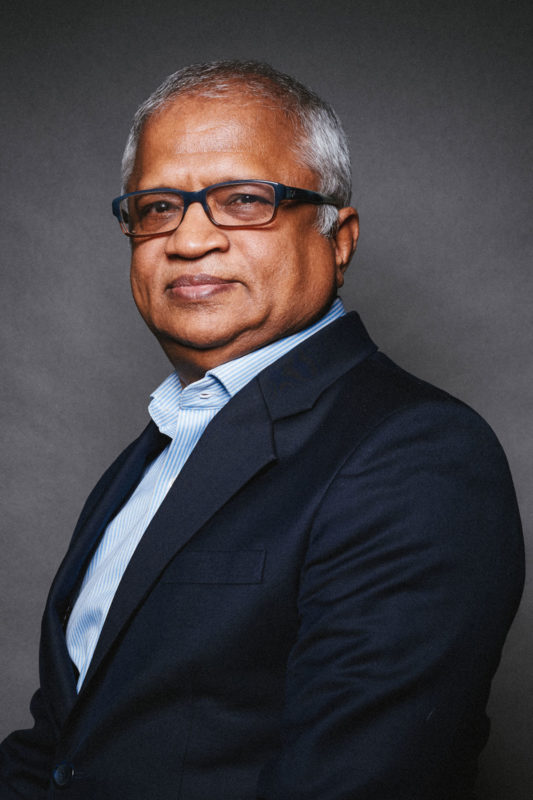Stan Sthanunathan, EVP Unilever CMI talks to Selin Cetinelli, Director of Unilever CMI on Transformation.
What kind of data are you now analysing that you would not have done five years ago and what does this mean in terms of team composition and skills?
Ten years ago we did not have proliferation of social media as we have today. It has been accelerating over the last 10 years, and probably reached a pretty high level five years ago. However, the composition of social media changed – it used to be Facebook in the past, now it is Facebook plus Instagram, WhatsApp, Twitter etc, so there are lots of new, emergent social media which have all become mainstream. Therefore there is a lot of data out there which we did not have in the past.
Previously, we used to learn about our brands by asking consumers questions and getting answers. That world has changed now because people are talking about our brands but they are not necessarily talking to us. They are talking amongst themselves. The best example is ratings and reviews on Amazon. Consumers are increasingly valuing ratings and reviews and are influenced by that.
If you look at data from that point of view, in my opinion, almost any question that needs to be answered, has been answered out there by consumers. It is just that we probably do not know where the answer sits or what the answer is. And therefore it requires a completely different skillset to go and look for it and mine it at scale. That in itself necessitates doing a fair amount of primary research but of a different kind. That is why we started the whole People Data Center (PDC) journey in Unilever CMI. It requires a completely different set of skills in the sense that you need people who have ability to a) be curious to look for data and sources where they never thought they should look for, b) have some basic coding skills, c) have high end analytical skills to make sense of disparate data sources – words, numbers, pictures and d) we need people who can bring it all together.
In the past we used to have tracking data, U&A data, concept testing, product testing, which were all in silos, but the data we have access to today is not in those traditional silos, it is all bundled and mixed up.
An ability to tell a holistic story is now more important than ever before.
Are there particular sorts of decisions that you believe are more successfully supported by AI, and if so what are they and why?
AI in my view is relatively in its infancy stage. There is a lot of talkability about AI but that does not mean that it has gone mainstream as yet. I look at it more from a machine learning perspective than an AI perspective. Machine learning can actually play a very big role in pricing decisions among many other areas. It can help us in understanding how trends travel, it can be extremely useful in understanding patterns which the typical human brain might find tiring and difficult to do. That’s why I look at it as augmenting human intelligence as it takes away some of the burdensome work you do, so that you can be the best that you are capable of.
What are the greatest changes in how client companies work with insights suppliers?
The biggest change will be moving from episodic interactions to ongoing engagement. This is where we are going to have a massive struggle as an industry because we as clients don’t know how to handle that, and our agency partners don’t know how to cope with that in a world where they are used to be getting paid for projects. As a result, all of us are muddling through this water without actually coming to a clear solution.
Everybody has their own business model and their business model is based on delivering service (getting briefs, providing a report and billing clients for it), and our systems are built to support exactly that, but that world is going to change and we need to change too!
If you look at our own internal People Data Center (PDC) in Unilever CMI, there are no episodic interactions, there are a number of people who work, and yes they do projects but they are not paid on a project-by-project basis. There is engagement year-long so that is where you can produce better quality work as you get deeper and deeper into it.
What are the weaknesses of AI when it comes to understanding consumers or checking for bias or profiling in invisible data collection processing?

I have a slightly different definition of AI which you might have heard me talking about before. If we use AI as an Augmented Intelligence tool rather than an Artificial Intelligence tool, then we can reduce all these biases that we are talking about. AI systems which do not have a mind of its own will be completely bias-free and so on but look at it a little bit more closely. How is Artificial Intelligence going to do that? It is going to do that based on data that is available. And data that is available, already has certain kinds of biases already built in. So, it might already end up perpetuating biases rather than actually overcoming them. That is why I think Augmented Intelligence is the way forward and not just Artificial Intelligence as yet. But in three to five years from now, AI would have changed to such an extent that we might be talking a completely different language than what we are talking today.
On another dimension, I was quite puzzled recently when I found out that the multi-billionaire CEO of Blackstone (one of the most successful equity investors) donated $180m to Oxford University. This is the largest grant Oxford University has gotten after Queen Elisabeth I. What did he give this money for? He gave this money for primary work on Ethics in AI. Now, you would not really give up $180m if you are not worried about an issue, especially when you can easily set up an AI lab for the same amount.
What are the biggest obstacles to the cultural change that people like you are trying to bring about? How have you sought to overcome these?
One of the biggest skills that most companies generally ignore is change management. If you do not bring people onboard with the change, and help them to cope with change, then whatever great ideas you have do not land.
This whole conversation comes down to trust. In a safe environment, people trust each other. But how do you create an environment where people always trust each other? Then you need to ask what is the relationship you have with people? You need to at least trust the process and trust the person.
If you want to go fast, go alone, but if you want to go far, go together. We are in the business of going far, so we have to always keep in mind that we have to go together which means we have to take everybody along in the journey. That should be the over-arching principle for any change management – we win together, we lose together.
The leadership lesson here is whether the leaders are capable of building strong relationships with people. And that is the only way you can drive a cultural change; otherwise, people will do it as a transactional change activity but it will never be executed with passion. It is almost like a ladder – relationship is at the bottom, which drives trust, which makes empowerment and collaboration much easier.
Recently, there has been conversation around data illiteracy in marketing and management as a whole – and that this in itself acts an obstacle to being data-led or insights-led. What is your view on this?
I do not believe in this notion of big data. Data is always big relative to the computing power that existed at that point of time in history. When I started out my research career, we used to get intimidated by the amount of data that a 10,000- respondents survey would generate, and the machines used to take long times to process that data. That is because machines had very little computing power. That data was big in those days. Today you have big data but the machines also have huge computing power, software is much more sophisticated than what it was 20-30 years ago.
If you can distill and analyse what is relevant on an ongoing basis, then you can do a lot of magic with a lot of data. That is why I believe that you either have big imagination or small imagination, not big or small data. People who are successful have big imagination because they will figure out the rest as there is always a solution for every problem. And there is enough computing power you can always figure out what to do.
Also, not everybody needs to be data-literate, different people have different roles in life. Even in marketing different people have different roles. If you are a brilliant marketer, your time should be spent on distilling and asking the most provocative question. Then we will go ahead and figure out if there is an answer that can be provided or not. But if you are going to be constrained by what data is available, you are automatically developing guard-rails which are closing in on you. Spend your time thinking what is the most provocative question that you can ask.
How can we best deal with silos such as marketing, social media and technology enablers that exist alongside the insights function, to ensure that insights flow throughout the organisation?
Working in squads is going to be the new way of working. What I mean by that is everybody does not have expertise in everything, contrary to what they would like to believe.
Inevitably, I would have a view on marketing, and marketing would have a view on insights. But each of us need to do our job in the best possible way to produce output that is collectively good without stepping in to doing someone else’s job. It is difficult to pull back but that is a skill we all need to learn.
It essentially leverages one trend that is emerging — Marketing is becoming a specialism, it is not a generalist function anymore. Technology is making it a specialist function, so by definition if it is becoming specialist, you have to respect the specialist and you have got to create processes by which specialists can come together for a greater good as opposed to everybody being a generalist and trying to do whatever is right. That is a big change that is happening – marketing is becoming a series of sub-specialisms which need to come together to deliver greater value.



1 comment
great PoV as usual with Stan. And agree that augmented intelligence approaches to social data really breaking this data out into new areas of insight not available before. We can now classify language “like humans do,” even when keywords are not present or meaning is implicit. This works very well for brand health, CX, trend discovery. With :auto” Machine learning as a Service solutions too, the true subject matter experts can stay in the loop and indeed “teach” the models in ways would be impossible. The closer the models are designed to the center of knowledge, the better the models tend to perform. And of course, this human in the loop helps avoid unintended bias. Good stuff.